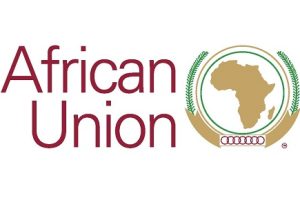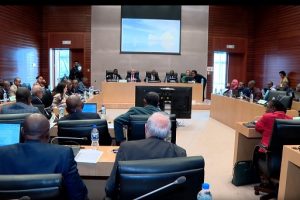BY ADDISALEM MULAT
The interventions of superpower nations in other countries have been in many instances counterproductive as seen in Syria, Libya, Afghanistan, Yemen, and the list goes on and on. The interventions have been pushing conflict-torn countries into uncharted territory. In the name of saving a nation, powerful nations are severing nations.
In some cases, some countries turned out to be beneficial to intervene in the domestic affairs of other nations to execute their secret missions. Even worse, unjustified external intervention turned tranquility to frailties. Due to this, the idea of external intervention is becoming increasingly debatable issue with some countries admitting a fault lines.
This time, some countries for the west are trying to repeat the same mistake in Ethiopia though Ethiopian centuries-old experiences to repel external aggression.
When the terrorist TPLF carried an attack on the Ethiopian National Defense Forces that was situated in the Tigray region, the west and the international media did not utter a single word.
However, at the time when Ethiopian National Defense Forces undertook law enforcement operations Tigray region with the purpose of bringing terrorists to justice, some international media outlets began engaging in giving false impressions of the situation.
Even worse, they kept on fanning the flames and puzzling the international community with cooked-up stories time and again.
Abdiwahab Sheikh Abdisamad, is an Executive Director of the Institute of Horn of Africa Strategic Studies, and an analyst at Southlink Consultants. In his recent article appeared at The Nairobi Law Monthly he said, “In his initial days in power, Abiy freed tens of thousands of political prisoners, lifted Internet restrictions and restored diplomatic ties with Eritrea, culminating in the end of a long-running border war. These reforms contributed to his winning the Nobel Peace Prize in 2019, impressing friend and foe alike. But no good deed goes unpunished, and a movement soon emerged to deconstruct his reforms with the ultimate aim of removing him from office.”
Before handing overpower, the TPLF emptied the state coffers, taking 30 billion Dollar and a substantial amount of gold, effectively bankrupting the country. According to a highly placed source within the Ethiopian Government, TPLF stashed the funds in Djibouti before moving it to personal accounts and lobbying firms in Washington and Nairobi.
This money is currently supporting a sophisticated misinformation campaign that involves compromising prominent journalists in the region and distributing fake news on social media against Abiy and his government. For long, the world bought into this disinformation campaign that successfully cast Abi as the villain and TPLF as the victim, Abdiwhab added.
Apart from causing chaos, the intervention of superpowers in the internal affairs of sovereign nations has been putting an end to some countries in the world.
According to a document entitled, ‘Highway to the Danger Zone: The Effect of Foreign Intervention on Political Stability,’ the effect of foreign intervention on political stability within developing states is a significant question because foreign intervention may act as a destabilizing factor. If this is the case, foreign intervention provides another possible reason for the start or rekindling of intrastate conflicts.
“However, if foreign intervention assists in the prevention of intrastate conflict, it is significant information for states that offer economic aid or military assistance to developing states. This question seeks to provide an answer on the effect of foreign intervention before intrastate conflicts begin or restart.”
As learnt from a document entitled, ‘should the United States intervene in international conflicts: why, when, and how?’ from the last decade of the twentieth century to the present, the United States and its allies have engaged in several interventions of various types.
Interventions included humanitarian, “regime change” and” democracy promotion,” as well as counter insurgency strategies. The US government has taken the position that certain actions may warrant US intervention. The global community has engaged in interventions under the auspices of regional and multinational organizations for various reasons and in various situations.
On one hand, such regulating efforts by the United States and its allies have been exercised in places like Afghanistan, Rwanda, Bosnia-Herzegovina, Iran (US rescue intervention), Kosovo, and Libya, as well as other parts of Africa.
On the other hand, the global community has remained silent in other situations, e.g., Sudan, where it has failed to intervene despite cries for intervention. By way of example, Africa exhibits many of the reasons why interventions are on the rise globally. The pretexts are oppression, corruption, lack of enforcement of women’s rights, gender violence, poverty among the masses, and instability led to many of the internal coups, riots, and other acts of self-determination throughout that part of the world.
After almost a decade, US soldiers finally left Iraq. One critic said the war was “launched under false pretenses” by President George W. Bush, and the death toll on both sides left a “destabilized Middle East, a newly emboldened and empowered Iran, and ‘widespread hatred of the U.S.”’ Nevertheless, “a government has been formed.” “Iraq still has a long way to go before it becomes a stable, sovereign, and self-reliant.
Shedding a light on the downside of external intervention, a document “The New Arab Wars: Uprisings and Anarchy in the Middle East” Mark Lynch draws attention to the role of foreign interventions in the aftermath of the initial protests. He argues that regional powers used the Arab Spring as an opportunity to increase their influence in the region.
A multitude of stakeholders from multiple countries intervened, in an uncoordinated fashion, where the Arab Spring uprisings were intense. Some of these interventions had humanitarian goals, but others did not, and provided military support to different sides in the conflict. The objectives of interventions also changed quickly as the situation on the ground evolved, indicated the document. “Since interventions were often not neutral and favored different rebel factions, they created conditions for the competitive arming of rebels and financial support for rebel groups, increasing the risk of conflict intensification.”
Meanwhile, while many countries have got into bottomless pit due to unjustified foreign intervention, Ethiopia according to many is strong enough to withstand any pressure.
In this regard, on Tuesday, the Office of the Prime Minister Ethiopia has maintained its independence and sovereignty by overcoming the challenges of the past and all the forces of evil that stood against her path. “Our heroic mothers and fathers have brought both foreign invaders and treasonous locals to their knees and left us today’s Ethiopia by gambling away their lives,” the statement added.
The statement also added that traitors that bit the hands that fed them and turned their backs on the Ethiopia that breastfed them, are conspiring with those near and far to weaken and dismantle the country, the statement stressed indicating that at this crucial period in time when our country has embarked on discarding the tattered shawls of poverty and instead is heading towards our inevitable path of prosperity, our historical enemies are feverishly organizing to deter us from our path.
The Ethiopian Herald August 13/2021





